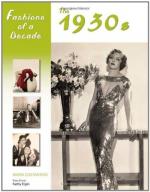|
This section contains 141 words (approx. 1 page at 300 words per page) |

|
Upton Sinclair, well known as the author of The Jungle (1906), a fictionalized expose of conditions in the Chicago meatpacking industry, moved into the national spotlight in 1933 and 1934 with a program he called EPIC (End Poverty in California). EPIC caught fire with many farmers and unemployed workers. Among its principal demands was that uncultivated farmland should be given to unemployed men and women. On this land, Sinclair asserted, cooperative farm colonies, model factories, and workers' villages would be constructed. Claiming that capitalism had "crumbled like a dry-rotted log," Sinclair said it was necessary to replace the production-for-profit system with the quasi-socialistic "production for use" of EPIC. In a close race for the governorship of California in 1934, Sinclair was narrowly defeated by the incumbent, Republican Frank F. Merriam, and thereafter EPIC faded from the headlines.
|
This section contains 141 words (approx. 1 page at 300 words per page) |

|




